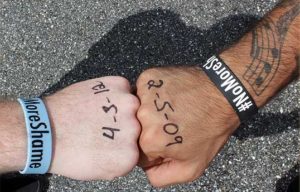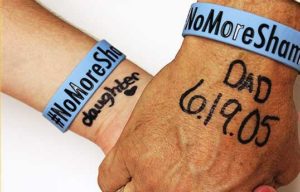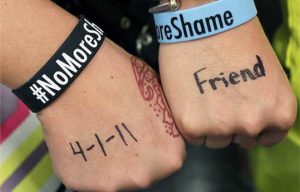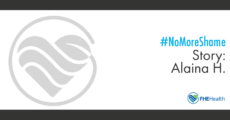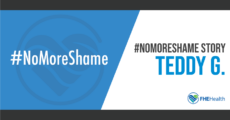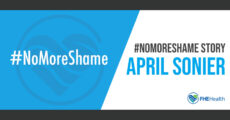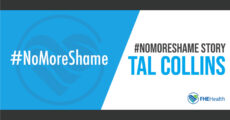No More Shame Stories
F.A.Q.
From the early days of HIV/AIDS to current-day efforts to stop a new global virus, stigmatizing people for having a disease isn’t just cruel—it’s a highly ineffective public health strategy. The same is true for addiction and illness, which is one reason FHE Health is promoting the #No More Shame” Campaign.
Another reason is that breaking the shame and stigma of addiction and mental illness is urgently needed, now more than ever:
- Suicide rates in the U.S. have increased dramatically, signifying “an alarming rise,” the American Psychological Association (APA) reported. As an illustration, between the years 2000 and 2013, the rate of deaths from suicide in the general population rose by 30 percent, among girls and women by 50 percent, and among boys and men by 21 percent.
- Rates of monthly drug overdose deaths, (which were already high), jumped to new record highs in the last year, according to July 2020 data from the Centers for Disease Control (CDC).
- Meanwhile, only about one in ten people with substance use disorders (SUDs) will seek treatment in 2020 (if this year’s numbers follow the same rough trajectories as previous years’).
The fact that addiction and mental illness can be effectively treated much of the time only amplifies the loss and tragedy behind these numbers. No stigma is worth a person’s life—especially when there’s life-saving treatment. And, as we’ve seen with other public health campaigns, no stigma can stand up to the power of many voices in unison sharing their personal experiences with addiction and mental health.
Enter the #NoMoreShame Campaign. It’s a safe, shame-free space for a conversation about addiction and mental illness, and you’re invited to be part of it—however you feel comfortable. We’re kicking it off with a simple but powerful icebreaker. The idea is to make it easy for anyone to join in and get their feet wet, without having to share a tell-all memoir if they don’t want to. (Read on for more details about the wristband challenge.)
In addition to the wristband challenge, we invite you to share your perspectives on Twitter, Facebook, or Instagram. Feel free to get creative with memes, images, or in written form. How you join the conversation is up to you. We are here to help open and facilitate it.
Another way to think of this campaign is as an inspiring conversation with participants from all around the country, even the world—only this global dialogue doesn’t require that you use words if you don’t want to. (For more details about how to participate and the options for participating, read on.) Even the simplest form of association and show of support can be enough of a commitment, in the movement to end stigmas and support mental health and recovery. We’re not asking you to save the world—only to communicate your solidarity with recovery.
Shame perpetuates the stigma of addiction and mental illness. When people feel ashamed about an addiction, they’re more prone to keeping it secret and are less likely to seek treatment. For others—even those in successful recovery— shame can cast a long shadow, causing self-stigmatization and fear of sharing one’s story.
But these stories and personal connections with recovery are a lifeline to others with addiction and mental illness: They provide hope for healing and shatter the stigma of addiction and mental illness.
This campaign is about ditching shame and breaking the power of stigma, one person at a time. It’s for anyone whose shame may be keeping them from seeking life-saving treatment; and, it’s dedicated to the millions of Americans who have lost their lives to untreated addiction or mental illness.
Wherever you are in your journey, your participation in this campaign—your voice and your story—is profoundly important. By joining the conversation, you could be saving a life.
If you’re in the throes of addiction, depression, or crippling anxiety and feel too ashamed to seek treatment, this campaign is also an invitation to say “no” to shame and reach out for assistance. If you’re in recovery and have relapsed for the fifth or tenth time—this is also an opportunity to say “no” to shame and tell us how you’re doing in a confidential email.
To help you get started, we’re renewing our wristband initiative from last year (when we sent #NoMoreShame wristbands to 47 states, the UK, Canada, South Africa, Australia and many more countries).
Now, though, we’ll be taking the same message around the world to even more people. Together, we can break the stigma of addiction.
To participate, you’ll first need a NoMoreShame wristband. You can request one by sending us a message and, as more inspiration, sharing your story. (We may even publish it, with your permission!)
